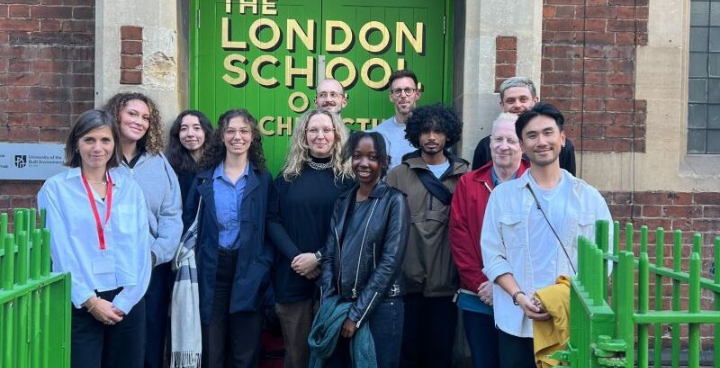
As Caribbean people, we believed that children like me weren’t healthy unless we were nice and round. Even today, many parents believe that a child will grow out of ‘puppy fat’ and they should start eating food from their own culture as soon as they can. Curried goat is fatty and salty. Pineapple punch is made with condensed milk. Ackee and saltfish – there’s a clue to the problem in the name.
Choosing to change
A diabetes diagnosis made change – rather than fad diets – essential. I knew I was faced with a choice of weight loss or possibly going blind or losing a limb. I knew that what we eat is learned behaviour, so I know we all have the power to say “no”. I’ve even persuaded my Mum to make those favourite dishes with less fat and salt in them now, so everyone is eating healthier.
Family support and friends
My brother made me healthy shakes. My niece, Makayla, put my menus and exercise programme on my Facebook page. People tracked my progress and sent me messages of support, or new menu choices. Now I tell people I’m on a weight loss journey and I get healthy eating tips back.
Mass and messages
We have health professionals who say “cut down on potatoes” to people who never have eaten one – we need to adapt healthy eating messages to different cultures. We have a very diverse range of cultures in Lambeth and they have different visions of what ‘healthy weight is’ – but the Portuguese, the West African, and the white working class communities believe when we talk about BMI and ‘healthy weight’ it’s only really appropriate to middle-class White British people – they’d rather look at someone and say if they look fat or not.
Be part of the change
Behind statistics and the obesity statistics there are a thousand personal stories like mine. Parents pass on their eating habits to children. We need to not just look at the end product of ‘childhood obesity’ but where we can make a difference.
For more information
In 2014, and following a competitive bidding process, Lambeth was announced as one of two ‘Food Flagship Boroughs in London. Food Flagship Status provided the opportunity to build on the great work that was already in place locally around food, and to test out new and exciting food activities.
Follow-ups to the Food Flagship project will include new initiatives on education about fast food, obesity, healthy eating and food growing.
For more information about the Lambeth Food Flagship Programme and what follows now, please contact Lambeth’s Public Health Department:
- Bimpe Oki- Public Health Consultant boki@lambeth.gov.uk
- Vida Cunningham- Public Health Specialist vcunningham@lambeth.gov.uk



